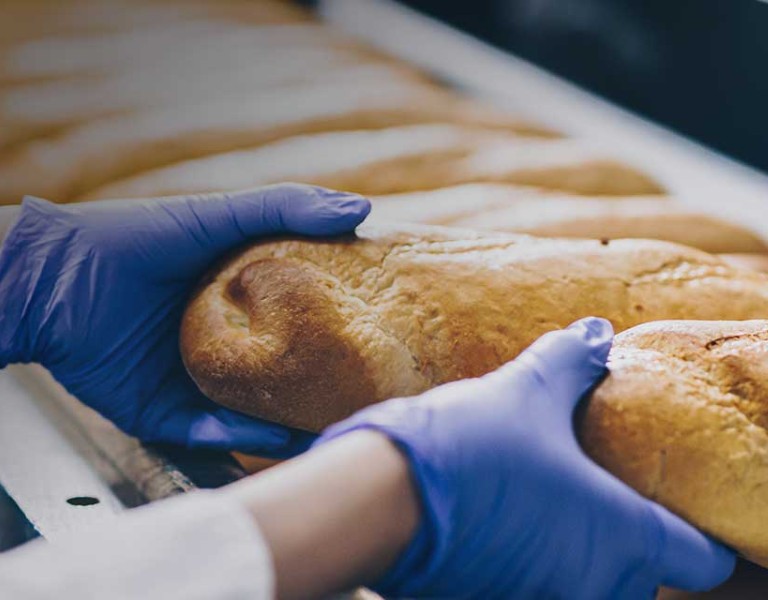The confusing maze that is the supply chain
How do you purchase your food and beverage items? What are your top considerations – health, price, quality of ingredients used (is it organic, free range or fair trade?), or the brand image (is the brand transparent about its sourcing and sustainability standards)? Whatever factors guide your decision, the food items and beverages that you buy have a complex supply chain that brings them from the farm to your shopping cart.
We know that supply chains are a maze. They are far flung – spanning practically every continent – and include every step that takes to bring food to your table, from farming, sourcing of raw materials, and food and beverage processing/manufacturing, to warehousing and transport, distribution, and packaging. As companies expand their product ranges, the supply chain becomes even more complicated. And these complex supply chains also grapple with issues such as labor conditions, animal welfare, safety and hygiene standards, and environmental impacts. They are not immune from global headline-grabbing scandals that put the consumer on high alert and set corporations on edge. Remember the horse meat scandal a decade ago? Or the more recent factory closures due to an E.coli outbreak?
The environmental impact of food and beverage supply chains also often tends to dominate headlines. In the U.S. alone, 30-40% of the food produced is not consumed and either ends up in landfills or is incinerated. Air freight of highly perishable foods contributes significantly to greenhouse gas emissions. The World Economic Forum estimates that only 14% of plastic packaging is recycled. Our health is on the line too, with the World Health Organization stating that approximately 600 million people get sick after eating contaminated food every year! As alarming as these statistics are, this is our reality. Even with the best of intentions, ensuring sustainability is a tricky issue and anyone that acts in bad faith in your supply chain inflicts long lasting reputational damage on your company.
Consumers are increasingly wising up to these supply chain issues – to an extent. A recently conducted survey by McKinsey found that healthy eating tops consumers’ priorities over eating sustainably. However, sustainability still ranked high, with 60% of respondents claiming they value sustainable solutions. The survey also found that younger consumers are willing to pay higher for plastic-free packaging, and there is a greater awareness of plant-based alternatives among consumers. However, the study also brings to light that consumers are often confused about what constitutes sustainable eating. This gives food and beverages companies an opportunity to in guide well-intentioned consumers in their purchasing decisions. F&B corporations are well-placed to take the leadership in promoting both sustainable and healthy eating among consumers. The starting point for sustainability, however, begins with supply chain transparency.
Your supply chain should not deliver unpleasant surprises
Supply chain transparency is all about communication – ensuring that all information regarding your products and processes is made available to your consumers, partners, and regulators. Transparency starts at the origins of the supply chain when you start sourcing for your products. The International Chamber of Commerce has devised a guide for responsible sourcing and advocates that corporations pay particular attention to riskier areas. These include selecting trustworthy suppliers, setting expectations on regulatory compliance, incorporating responsible sourcing as an intrinsic part of the buying practice, enabling suppliers to set their business standards, tracking compliance, and communicating with stakeholders.
With supply chain transparency, you are empowered to address all of the above and much more, including:
- Identify suppliers with similar sustainability commitments to your corporation and work with them to trace where raw materials/products are sourced from, the conditions in which the food is grown and produced, and define your quality standards.
- Respond quickly to safety and hygiene issues; ensure you are able to prevent the problem from escalating before consumers purchase any affected products.
- Minimize food and packaging waste by attention to factors such as food storage practices, exploring eco-friendly packaging providers, reducing the percentage of items that perish and have to be discarded, and accurate labeling of expiry dates.
- Comply with health and safety regulations especially when you are expanding to new markets and need to update yourself (and your suppliers) about the local regulations.
Supply chain transparency allows you to establish your unique value proposition and differentiate yourself from your competitors. Consumers do not want to just buy your products; they want to know your story, what you stand for, and why they should trust you. Establishing your reputation as a corporation that not only responds to customer demand for healthy, sustainable eating, but also strives to reduce the impact on the planet and takes steps to address any issues relating to labor, animal welfare, and hygiene helps improves stakeholder confidence in your brand. F&B corporations that are starting or strengthening their supply chain transparency can leverage transformative technology in the era of Industry 4.0.
Industry 4.0 and possibilities for supply chain sustainability
Industry 4.0, or the integration of cloud technologies and data analytics in manufacturing processes, is a popular term these days. Leveraging these technologies empowers businesses to ‘do more with less’, whether it is through performing predictive maintenance and analysis, boosting operational visibility, automating repetitive functions, or even simply improving the efficiency of operations.
The adoption of Industry 4.0 technologies in the F&B industry can help your business build capabilities such as:
- Traceability and visibility of processes and suppliers throughout your supply chain. You can identify unreliable suppliers who do not adhere to your expected standards, proactively recall items if needed, and keep track of payments.
- Single source of truth for all your data. Dealing with so many suppliers involved, there will be a need to collaborate, centralize data, and eliminate silos. This gives you the much-needed flexibility to identify risks early and explore expansion opportunities. An analytics solution, for example, connects all divisions in your corporation too, giving you greater transparency across your internal operations as well as external ones.
- Take ownership of product recipes. Your recipes will change as per consumer preferences. Integrate your core ERP with Product Lifecycle Management (PLM) solutions to research and source healthier ingredients, identify allergens and provide accurate information to consumers, calculate pricing changes for recipe changes (a very important issue in times of high inflation), and get innovative to introduce alternatives and new products.
- Address food and packaging wastage where possible. Forecast the number of ingredients needed, look at current and historical sales data to gain business performance insights, match supply with demand, and search for eco-friendly packaging options.
As you can see, the recipe is indeed changing and possibilities for improving your sustainability efforts are many with Industry 4.0. No one corporation can control everything within a supply chain – many factors are beyond our control. We are here to tell you more about what you can control as you become a more sustainable F&B corporation and maintain stakeholder trust. Listen to Fortude’s Colin Strang as he discusses the persisting issue of supply chain complexity and how F&B businesses can gain more transparency over their supply chains by leveraging the right technologies.
This video is the second in our three part vlog series on sustainability in the F&B industry. Watch the introductory video here.
Subscribe to our blog to know all the things we do


